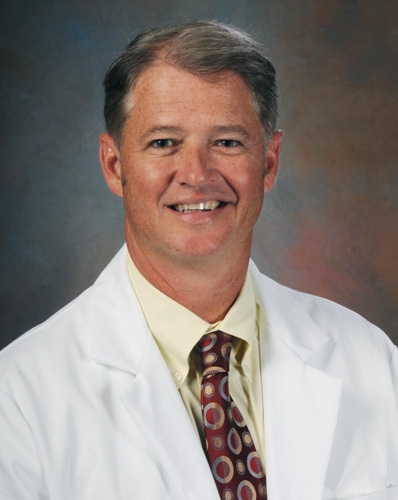Mitral Valve Disease

Feeling short of breath when working hard and even when lying down? You might be experiencing mitral regurgitation.
Mitral regurgitation, a leaky mitral valve, is also known as mitral valve regurgitation or mitral insufficiency.
The mitral valve separates the top and bottom of the left side of the heart, which is the heart’s main pumping chamber. The mitral valve is a one-way passage to keep blood flowing out of the heart to the rest of the body. It has flaps that should close behind the movement of blood. Sometimes the valves do not seal or close tightly which allows the blood to flow backward.
From the back flow of blood with mitral regurgitation the heart is handling more blood than it should. To manage this increased volume the heart will grow larger. With the enlargement, the heart becomes weaker over time.
Age is the most obvious risk factor for mitral regurgitation. The elderly are at the highest risk due to the natural deterioration of the valve. Also, a heart attack can damage the heart affecting the function of the mitral valve. Cardiovascular risk factors such as blood pressure and cholesterol are important as they can lead to coronary artery disease and heart failure, which is associated with heart enlargement and can lead to mitral regurgitation.
Symptoms patients may also experience along with the enlarged heart:
- Tiredness
- Shortness of breath
- Decreased exercise tolerance
- Leg swelling
- Irregular heartbeat
Mitral valve disease is usually a silent disease that progresses for many years. It is typically discovered by a primary care provider. When listening to the heart through a stethoscope they notice a heart murmur or whooshing sound – the noise made by the blood leaking backward.
From that discovery the primary care provider may recommend an appointment with a cardiologist. Even patients who are not experiencing any symptoms should be evaluated by a cardiologist and cardiac surgeon trained in mitral valve disease to determine if early intervention would be beneficial.
A common test performed at the cardiology appointment is an echocardiogram. This test uses sound waves to create pictures of the heart in action. It will also measure the blood as it goes back and forth through the mitral valve. They may also want to get a CT or MRI scan of the chest for more visual pictures of the heart. All this information will help physicians determine the treatment plan.
There is no medication to make the valve completely better, but the issues that make regurgitation worse can be targeted. Diuretic drugs or water pills can lessen fluid buildup. Also, keeping high blood pressure under control is important as it can increase the severity of regurgitation.
Mitral valve surgery is the only way to eliminate mitral regurgitation. The surgical options are to repair the valve or replace it. Repair involves making modifications to the existing valve to help restore it to its normal function. In replacement, a metal valve or a tissue valve is used. A metal valve will last a lifetime but requires the use of blood thinning medication such as Coumadin. With the tissue valve no blood thinning medicines are required, but they are subject to wear and tear so eventually they will need to be replaced.
At McLeod, we also have a minimally invasive repair option available. This option is performed using a catheter to insert a clothespin-like device called a MitraClip, which helps the valve close more completely and improves blood flow through the heart. The MitraClip is for patients who continue to have symptoms despite medication and are not a good candidate for surgery.
Performed in a cardiac catheterization laboratory, this simple procedure uses X-ray imaging and ultrasound technology to deliver the MitraClip to the correct position in the heart. Once in place, the clip attaches to the mitral valve leaflets, fastening them together.
To help prevent mitral regurgitation caused by heart disease, make sure to get enough exercise. Even moderate exercise can make a difference in heart health and help maintain a healthy weight. Also, stop smoking; take medications as prescribed to control risk factors and eat a heart healthy diet.
Dr. S. Cary Huber is a Board Certified Cardiothoracic Surgeon who specializes in structural heart disease. As part of the McLeod Structural Heart Program, Dr. Huber is a member of the McLeod Valve Team and is also a TAVR Certified Physician. Dr. Huber cares for patients at McLeod Cardiothoracic Surgical Associates in Florence, SC.
-
McLEOD REGIONAL MEDICAL CENTER FLORENCE
843-777-2000 -
McLEOD DARLINGTON
843-777-1100 -
McLEOD DILLON
843-774-4111 -
McLEOD LORIS
843-716-7000 -
McLEOD SEACOAST
843-390-8100 -
McLEOD CHERAW
843-537-7881 -
McLEOD CLARENDON
803-433-3000



-
McLEOD REGIONAL MEDICAL CENTER FLORENCE
843-777-2000 -
McLEOD DARLINGTON
843-777-1100 -
McLEOD DILLON
843-774-4111 -
McLEOD LORIS
843-716-7000 -
McLEOD SEACOAST
843-390-8100 -
McLEOD CHERAW
843-537-7881 -
McLEOD CLARENDON
803-433-3000
 Find a Doctor
Find a Doctor  Locations
Locations  Services
Services